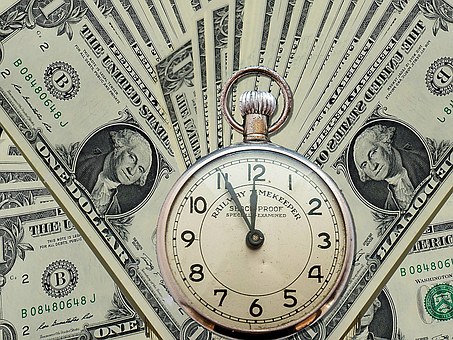FAQs – Is a Stocks and Shares Account Right for Me?
When searching for a stocks & shares ISA account to put your money into, it helps to understand the various types of ISAs that many UK institutions offer.



Is a Stocks and Shares Account Right for Me?
Here are the most popular types of ISA accounts that enable you to invest in stocks and shares:
- Stocks and shares dealing accounts: Many institutions will allow you to open an ISA account that allows you to directly buy, own, and deal in corporate bonds, gilts, stocks, and shares by yourself. Often, these accounts do not come with any type of advice. They are managed by the individual account holder and rely on his/her knowledge and expertise.
- Professionally managed accounts: These are often called “wrappers” because, unlike individual shares and stocks, these products often contain an array of stocks, bonds, and other investment vehicles that are managed by professional money managers. With such ISA savings products, you have the peace of mind knowing that your investments are professionally managed. However, you often pay fees/commissions (more so than on an individually-managed ISA account) for such service.
- Fixed-term index-linked accounts: In your search for the best stocks and shares ISA, you will come across fixed-term products whose returns aren’t directly based on the stock market itself but rather on an index (a basket of stocks, shares, bonds, etc.) that mimics a particular stock market. At the end of a fixed term, you receive a specific guaranteed rate of return and, depending on how the linked-index has performed, you may (or may not!) receive additional returns on your investment.
- Junior stocks & shares ISAs: These ISA accounts are especially meant for kids between the ages of 16 and 18 to benefit from investing in the stock markets. They offer some of the same features and characteristics that adult stocks and shares ISAs carry, and they are a great way to get kids interested in learning how the stock markets work while saving for specific goals (e.g., college tuition, a new car or a down payment for a home).
When deciding what type of stocks and shares ISA you want to create for your money, you may want to consider the merits and demerits of each of these accounts. Given the ISA allowance for 2015, you may want to put some thought into having part of your money invested in each of these accounts in addition to a cash ISA.
See Also:
- Best ISA Rates and Accounts – Cash ISAs, Fixed Rate, Junior Cash ISAs
- Best Fixed Rate ISAs – Ranking and Comparison
- Top Junior ISAs – Best Rates (Ranking)
How Do I Decide If a Stocks and Shares ISA Is Right for Me?



As a rule of thumb:
- If you are a higher or additional tax ratepayer and you expect to have significant income in the form of dividends, then a stocks and shares ISA may be worth exploring.
- If you don’t understand how the stock markets work, it is best to stay away from stocks & shares ISAs.
- If you don’t have the appetite for stock market volatility, it is best to stay away from stocks & shares ISAs.
- If you always want to play it safe with your savings, not willing to lose your principal in anticipation of higher gains – stocks & shares ISAs aren’t for you!
- If you are an investor that’s unlikely to use up all of your capital gains allowance (£11,000) and invest in bonds rather than shares, then you’re probably better off with a cash ISA account.
Can I Have Both a Cash ISA as Well as a Stocks & Shares ISA Simultaneously?
Yes, you can!
As long as you are within your personal ISA allowance, which is £15,240 for the current 2015/16 tax year, you can put all of the money into a stocks & shares ISA or split it between stocks and shares and cash ISAs.
Don’t Miss:
- Best Cash ISA Rates – 2015 to 2016 (UK)
- What is an ISA Account? (Definition of Individual Savings Accounts)
What Types of Investments Can I Hold in My Stocks & Shares ISA?
Depending on the type of investment vehicles your institution offers, you can hold a wide variety of investments in your stocks and shares ISA. Common investments offered include investment trusts, corporate bonds, funds, gilts, ETFs, and individual stocks and shares.
Understanding the Nuances of “Tax-Free”
The best ISA rates offered by cash ISAs have the potential to grow your savings quickly.
However, anyone that understands how stock markets work will definitely see the advantage of letting their savings grow tax-free inside a stocks and shares ISA.
That’s because the stock market has the power of exponentially creating huge gains.
Before making a decision on whether the tax-free nature of these products is indeed right for your personal tax situation, consider the following variables.
If you are a basic-rate taxpayer:
- Dividends: The dividends that you receive in your stocks & shares ISA are already taxed. Companies paying you the dividend will deduct a 10% tax at source, which you (as the stock/share holder) cannot reclaim.
- As a basic-rate taxpayer, you may not be that much better-off, from a tax savings point of view, whether you earn dividends inside or out of an ISA account.
- Capital Gains: Every taxpayer in the UK has a £11,100 capital gains allowance for the 2015/16 tax year. This allowance is available regardless of whether your stocks and shares are held in an ISA account or outside of it.
- For basic-rate taxpayers, any capital gains in excess of this allowance are taxed at 18%. However, if these capital gains (over and above £11,100) are earned inside a stocks and shares ISA, they are fully tax-exempt.
- Interest: Interest payments on instruments, such as bonds, are tax-free in an ISA account, which means that basic-rate payers save 20% by holding interest-bearing vehicles inside a stocks & shares ISA.
If you are a higher or additional-rate taxpayer:
- Dividends: Dividends earned outside of an ISA are taxed at 32.5% and 37.5 for higher-rate and additional-rate taxpayers respectively. By holding your dividend-paying stocks inside an ISA account, you will save on that tax. However, the 10% deduction at source, as with basic-rate taxpayers, will still apply.
- As a higher-rate or additional-rate taxpayer, you would potentially have to pay a higher rate than the 10% deducted at source – anywhere between 32.5% and 37.5% – for dividends earned outside of a stocks and shares ISA account.
- Capital Gains: Both higher and additional-rate taxpayers have an £11,100 ISA allowance for the 2015/16 tax year for capital gains – regardless of whether the stocks were held inside an ISA account or outside of one.
- This means that the ISA really only pays off if the stocks/shares held inside the account were sold for an appreciated value greater than £11,100.
- For higher-rate and additional-rate taxpayers, capital gains in excess of the £11,100 allowance are taxed at 28%; however, such gains made in a stocks and shares ISA are fully tax-free.
- Interest: Interest earned outside of ISA accounts is taxed at 40% and 45% for higher-rate and additional-rate taxpayers respectively. By holding interest-paying instruments, like bonds, in an ISA, you can avoid paying that tax.
So when making your decision on which instruments are best suited for your stocks & shares ISA, make sure you not only review the characteristics of a particular product but also your unique income tax situation.
All-in-One Change Management Tools
Top Rated Toolkit for Change Managers.
Get Your Change Management Tool Today...
See Also:
- Top 5 Banks in Canada | Best High Interest Savings Account – Canada
- Best Banks in Australia (Ranking: Biggest Banks, Best Savings Accounts)
- Best Current Accounts UK – Top Current Account Interest Rates
- Best Savings Rates UK – Compare the Best Savings Accounts in the UK
- Top 5 UK Banks | Ranking | Biggest British Banks & Best Banks in the UK
Image Sources:
- https://pixabay.com/illustrations/dollar-pocket-watch-finance-1009324/
- https://pixabay.com/photos/computer-work-counsel-practice-506756/
AdvisoryHQ (AHQ) Disclaimer:
Reasonable efforts have been made by AdvisoryHQ to present accurate information, however all info is presented without warranty. Review AdvisoryHQ’s Terms for details. Also review each firm’s site for the most updated data, rates and info.
Note: Firms and products, including the one(s) reviewed above, may be AdvisoryHQ's affiliates. Click to view AdvisoryHQ's advertiser disclosures.



